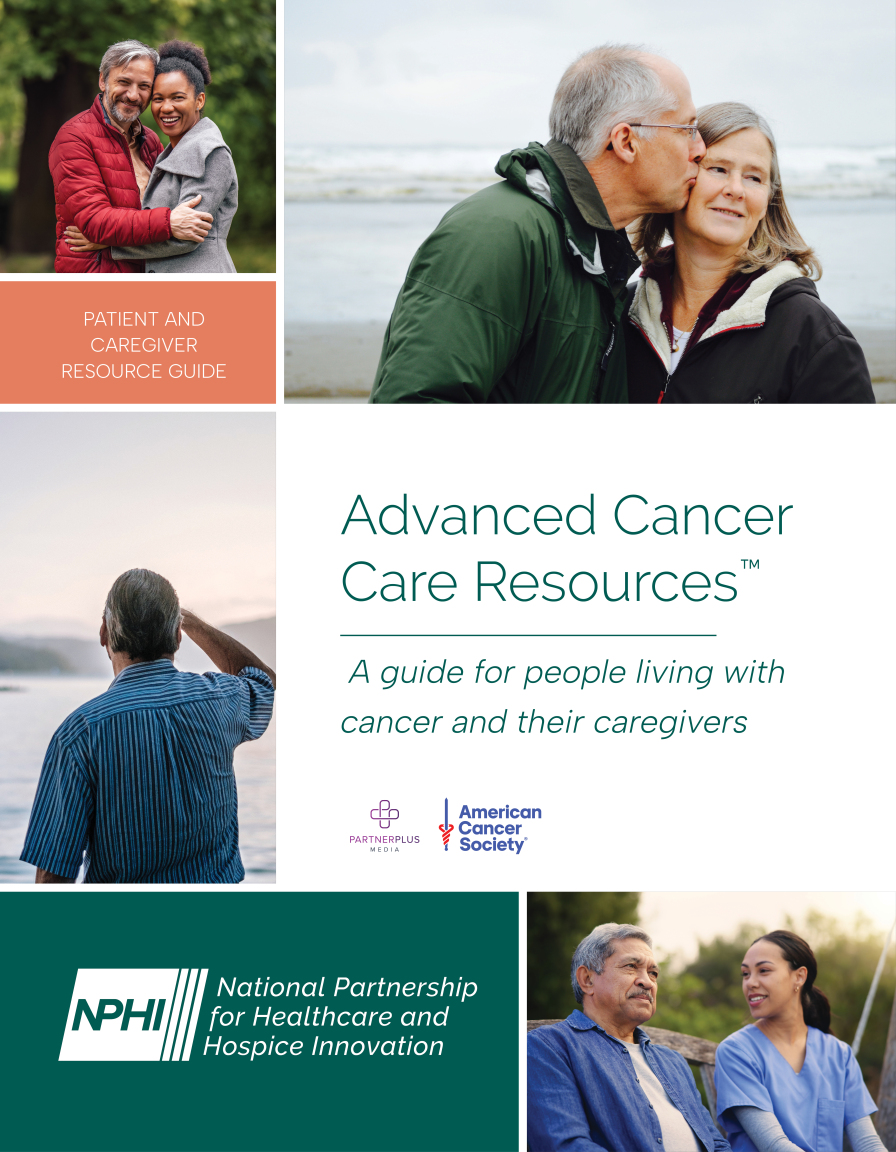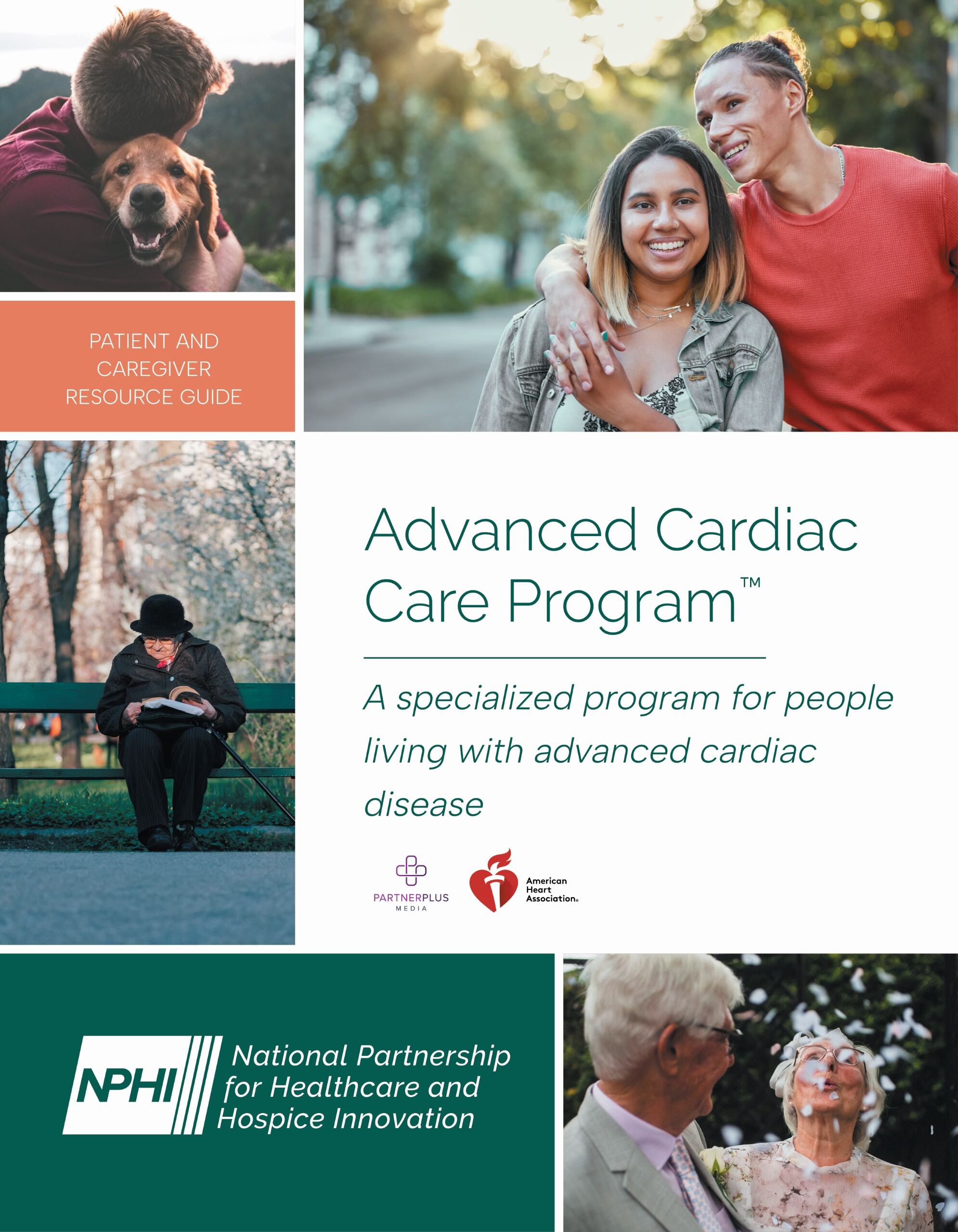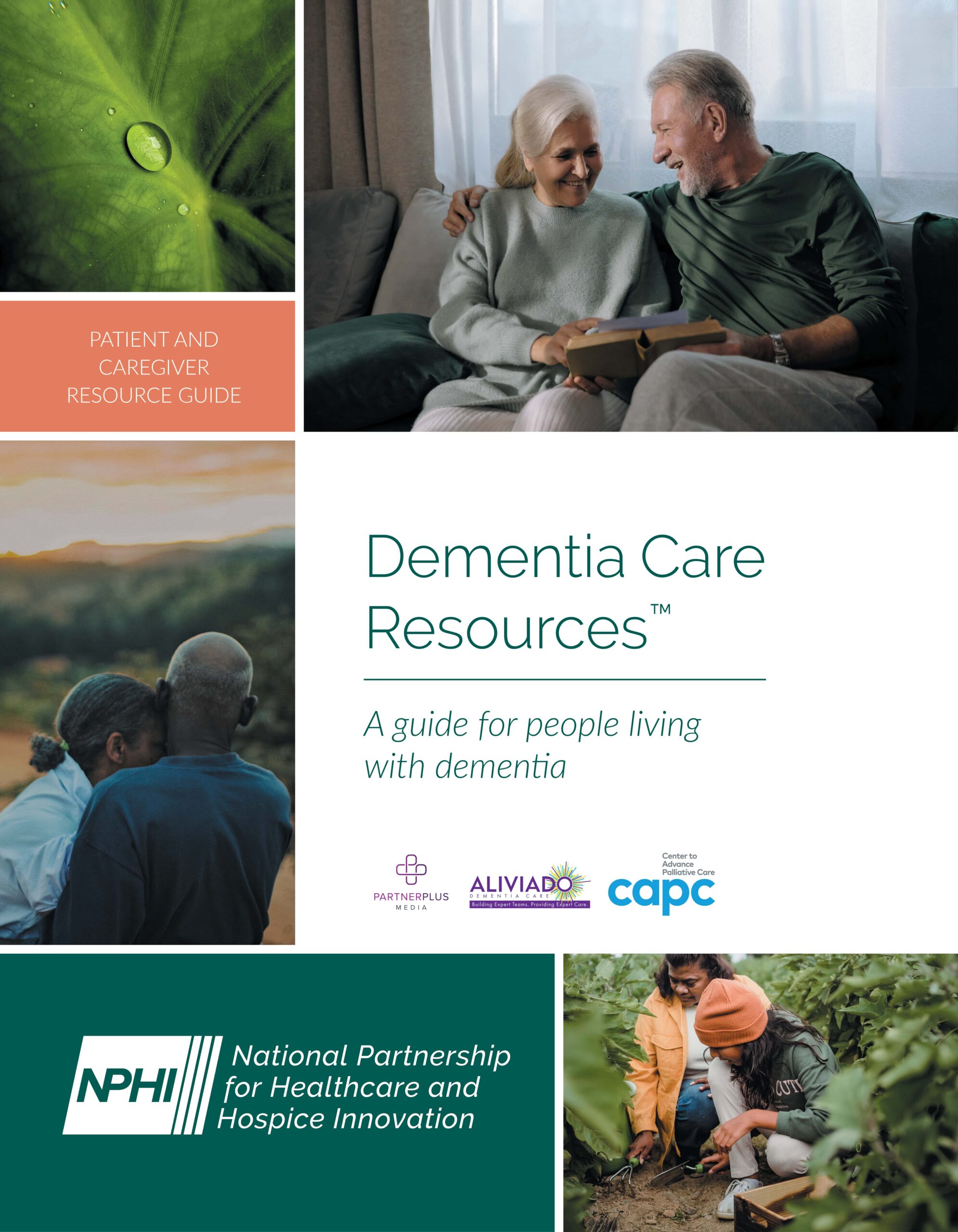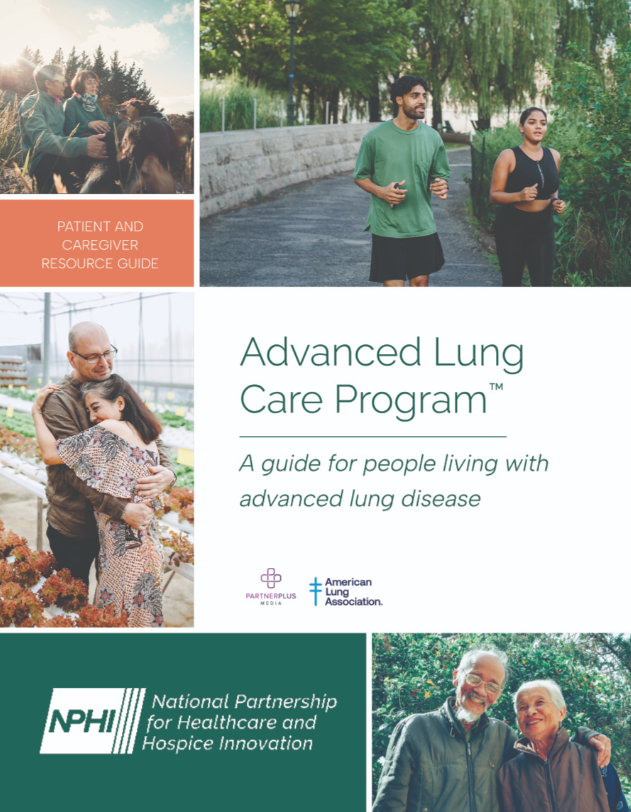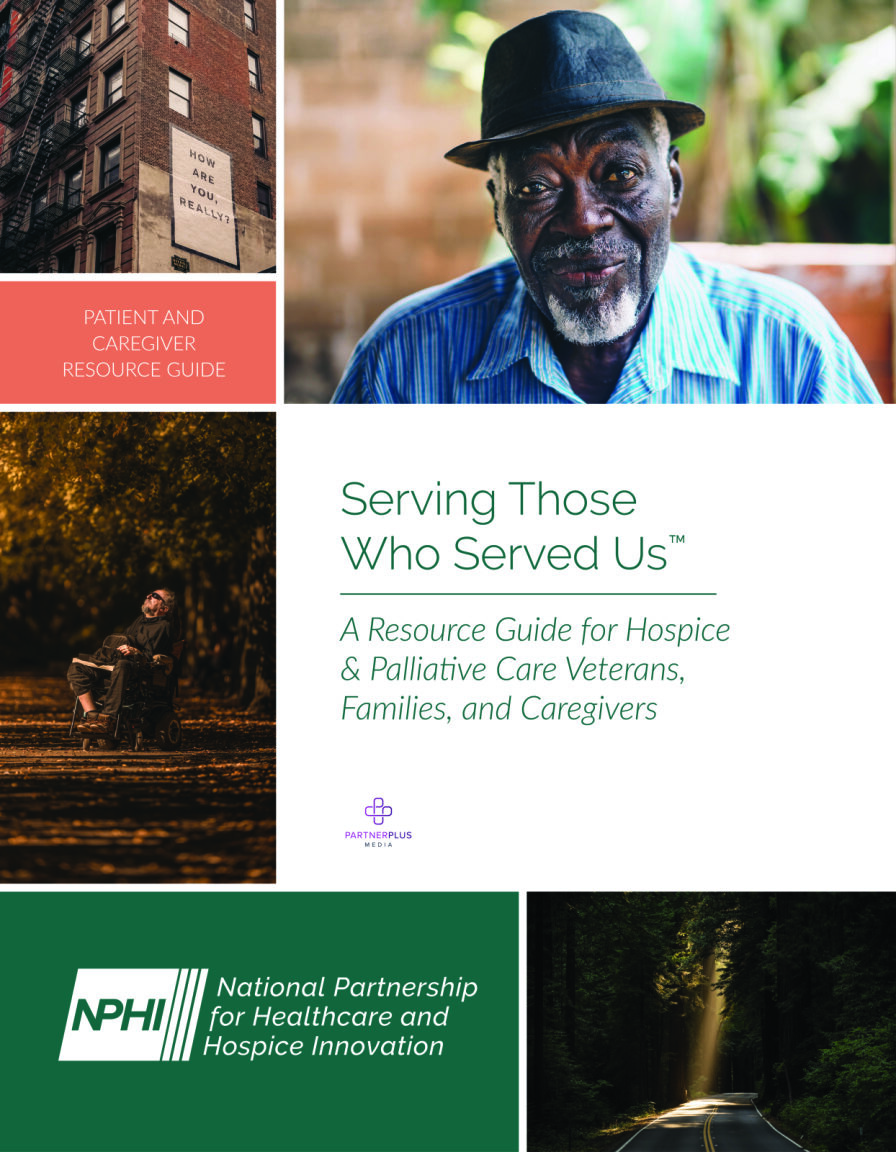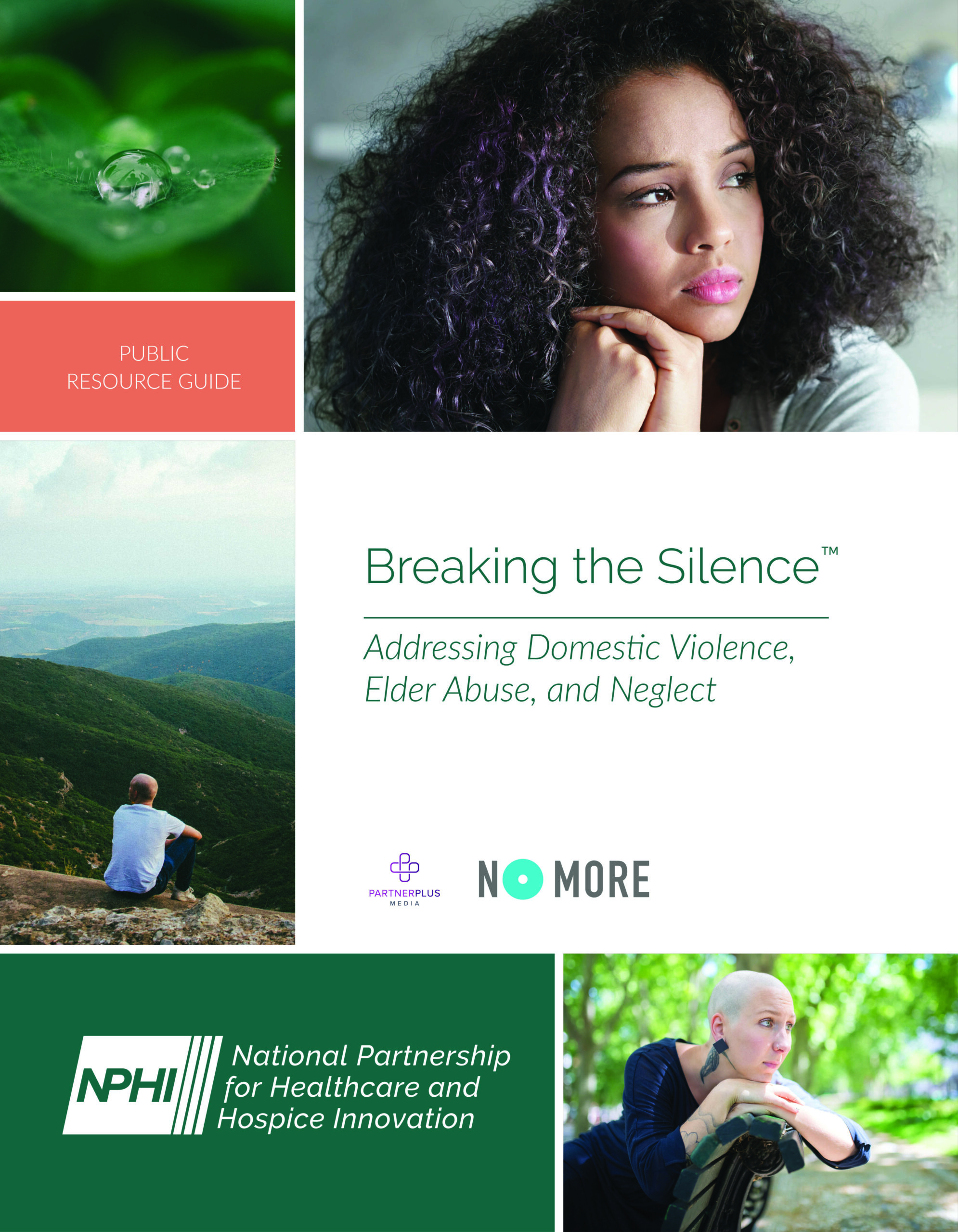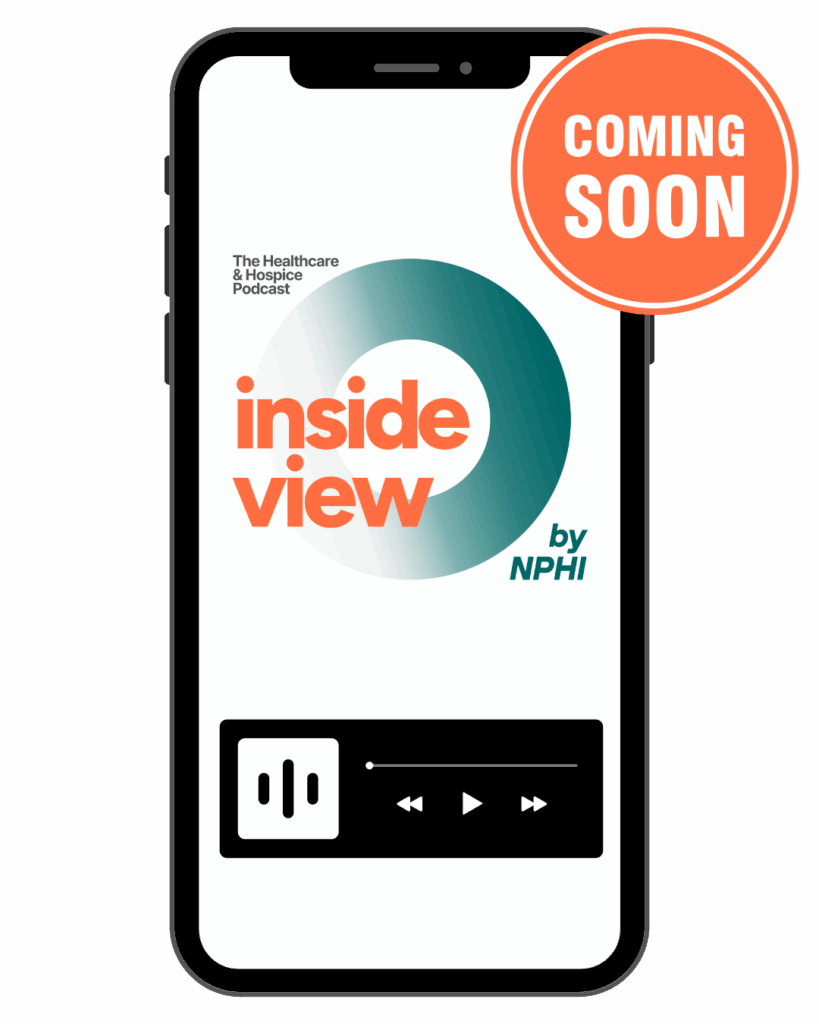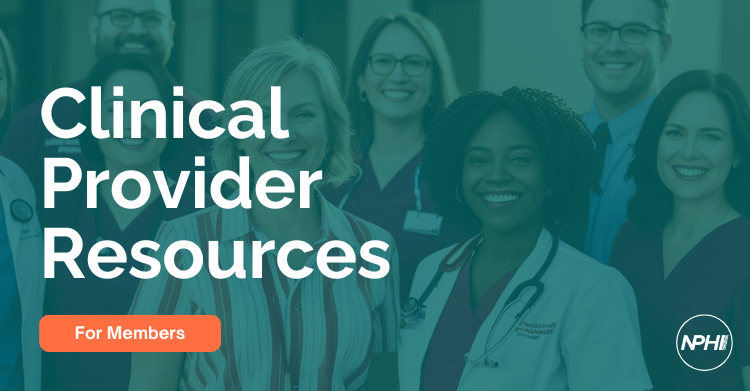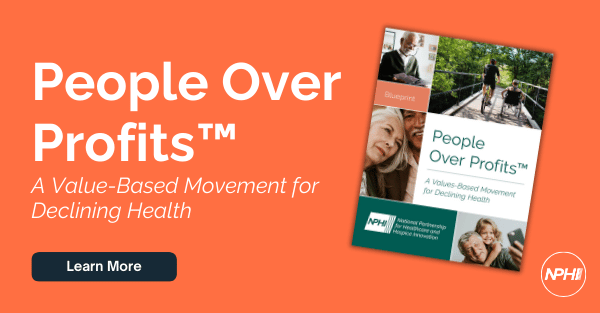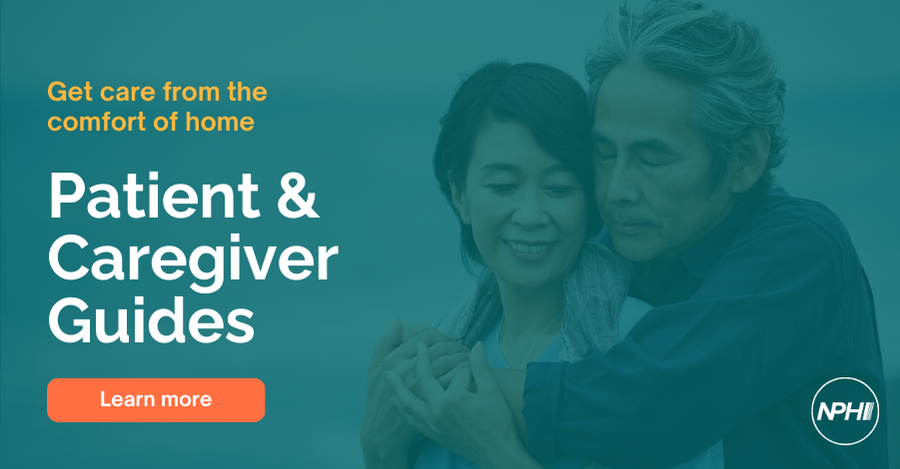Care Resources
We're here to help patients, their families and healthcare providers by sharing useful guides and resources.
What's on this page
Support for Patients & Caregivers
Whether you’re living with a serious illness or caring for someone who is, you don’t have to do it alone.
We create helpful guides and tools with our members so patients and their caregivers and families can get the best care and help from the comfort of home. Need help managing symptoms or caring for someone? You’re in the right place.
Resources for Caring for a Patient
Provider Clinical Resources
These guides and tools are exclusively available to our members—what we like to call our “secret sauce.”
- Cancer Care
- Cardiac Care
- Dementia Care
- Lung Care
- Health Equity
- Elder Abuse & Domestic Violence
- Community Counseling Guide
- Caregiver Screening Tool
- Data & Analytics
Plus much more on our Member Portal.
Caregiver Screening Tool
NPHI’s Caregiver Experience Questionnaire is designed to help hospices identify the most effective ways to support caregivers as they progress through their journey caring for a loved one.
Developed from the NPHI-led study Caregiver Experiences and Perceptions of Declining Health, the questionnaire enables case managers to identify caregivers with one of four archetypes. From there, it recommends service offerings and communication strategies based on each archetype’s specific needs.
Included in this tool are two versions of the questionnaire – one for caregivers to complete, and one for case managers to use to score the completed questionnaire.
Editable versions are available in Canva for NPHI members who would like to customize the design using their own branding. Please email our communications team to get access to the Canva documents: media@nphihealth.org
Caregiver Experience *Questionnaire
Please read this flyer for help on how to use.
*Click here for background & research that went into developing this tool.
Printable Care Sheets
Download our printable care sheets to learn about relief for common symptoms and find helpful printable forms.
Tracking Sheets
Advance Care Planning & Advance Directives
Take the first step—start planning today to make your wishes known and put your values into action.
Planning for the future ensures your voice is heard even when you can’t speak for yourself. Advance Care Planning is a thoughtful process that allows you to reflect on your values, discuss your healthcare preferences with loved ones, and document your choices to guide your care team.
Whether it’s deciding who will speak for you in medical situations or outlining your preferences for treatments, starting the conversation today gives peace of mind to you and your family. By taking action now, you ensure that your wishes are respected, even in unforeseen circumstances.
Advance Directives, Living Wills, & Powers of Attorney
Planning for your future medical care is important to ensure your health decisions align with your wishes, even when you’re unable to make them yourself. Creating advance directives allows your loved ones and healthcare providers to follow your preferences.
Advance directives are essential for all adults. They let you outline the medical care you want or don’t want and allow you to appoint someone to speak on your behalf if you’re unable to communicate. These documents vary by state, and using the state-specific forms ensures healthcare professionals can easily understand and follow your instructions.
An advance directive typically includes a living will and a health care power of attorney:
- A living will outlines the treatments you want to accept or decline, such as life support or resuscitation. It usually goes into effect only if you meet certain medical criteria and cannot make decisions.
- A health care power of attorney allows you to name someone—a trusted family member or friend—to make medical decisions for you when you are unable to. It’s crucial to discuss your healthcare wishes with this person so they can act in line with your preferences.
Some states combine these forms into one document, letting you detail your care preferences and appoint your healthcare advocate simultaneously. Be sure to use your state’s specific forms to ensure your wishes are clearly communicated.
You can find your state’s advance directive forms by doing a quick internet search: “[State] Advance Directive Forms.”
NPHI Recommended Resources to Get Started
There are helpful resources to guide you through the process of creating an advance directive. Start by reflecting on your health, personal values, and priorities. Discuss your wishes with people who care about you, such as close family members, trusted friends, your doctor, or spiritual advisors. These conversations can provide clarity and support as you plan.
In addition, many online tools and websites offer step-by-step assistance with creating advance directives. While most of these resources are free, it’s important to review the terms and conditions before using them to ensure they meet your needs:
Planning Conversation Guide
National Institute on Aging
This resource provides guidance on starting conversations and explains what advance care planning is.
Planning My Way
Cunniff-Dixon Foundation
This website offers free guidance and helpful guide sheets to begin planning.
The Conversation Project
Institute for Healthcare Improvement
This website offers free guidance helping people share their wishes for care through the end of life.
Helpful External Resources
We recommend these additional resources from trusted external organizations. Whether you’re seeking practical advice, emotional support, or educational materials, these tools can empower you to provide the best care possible.
Alzheimers Association
The Alzheimer’s Association leads the way to end Alzheimer’s and all other dementia. Learn the 10 early signs and symptoms of Alzheimer’s. If you or someone you know is experiencing any of the signs, please see a doctor. Early diagnosis gives you a chance to seek treatment and plan for the future.
Caring Across Generations
Seven in ten Americans will need home care at some point due to disability or the simple process of getting older. Caring Across Generations is building a national movement of the “caring majority” by addressing four major program areas: culture change work; local, state and federal policy advocacy; online campaigning; and field activities and civic engagement.
National Alliance for Caregiving
A nonprofit coalition of national organizations focused on improving the lives of family caregivers, the National Alliance for Caregiving was created to foster research, conduct policy analysis, develop national programs, and increase public awareness of family caregiving issues. It is dedicated to improving quality of life for families and their care recipients through research, innovation, and advocacy.
AARP Family Caregiving
AARP has a suite of resources for caregivers and families. Find tips and support for family caregiving, from providing personal care, medical management and financial guidance to finding a healthy work-life balance.
Family Caregiver Alliance
The Family Caregiver Alliance was the first community-based nonprofit organization in the country to address the needs of families and friends providing long-term care for loved ones at home. It strives to illuminate the caregivers’ daily challenges to better the lives of caregivers nationally, provide them the assistance they need and deserve, and champion their cause through education, services, research and advocacy.
Lewy Body Dementia Association
The Lewy Body Dementia Association (LBDA) nonprofit organization dedicated to raising awareness of the Lewy body dementias (LBD), supporting people with LBD, their families and caregivers and promoting scientific advances. The Association’s purposes are charitable, educational, and scientific.
The Caregiver Space
The Caregiver Space is a non-profit dedicated to providing a supportive online space where caregivers can share their stories, tap into resources and learn from the real experts: other caregivers. They can tap into their community to get comfort, share stories, and find solutions at any hour of the day or night.
Today's Caregiver
Caregiver Media Group is a leading provider of information, support and guidance for family and professional caregivers. Caregiver.com includes topic specific newsletters, online discussion lists, back issue articles of Today’s Caregiver magazine, chat rooms and an online store; all developed for caregivers, about caregivers and by caregivers.
US Department of Veterans Affairs (VA)
This site provides information on services available to the family caregivers of a veteran. The US Department of Veterans Affairs (VA) values the caregiver’s commitment as a partner in their pledge to care for those who have “borne the battle,” and they have several support and service options designed with caregivers in mind. The programs are available both in and out of the home and help care for both the Veteran and the caregiver.


